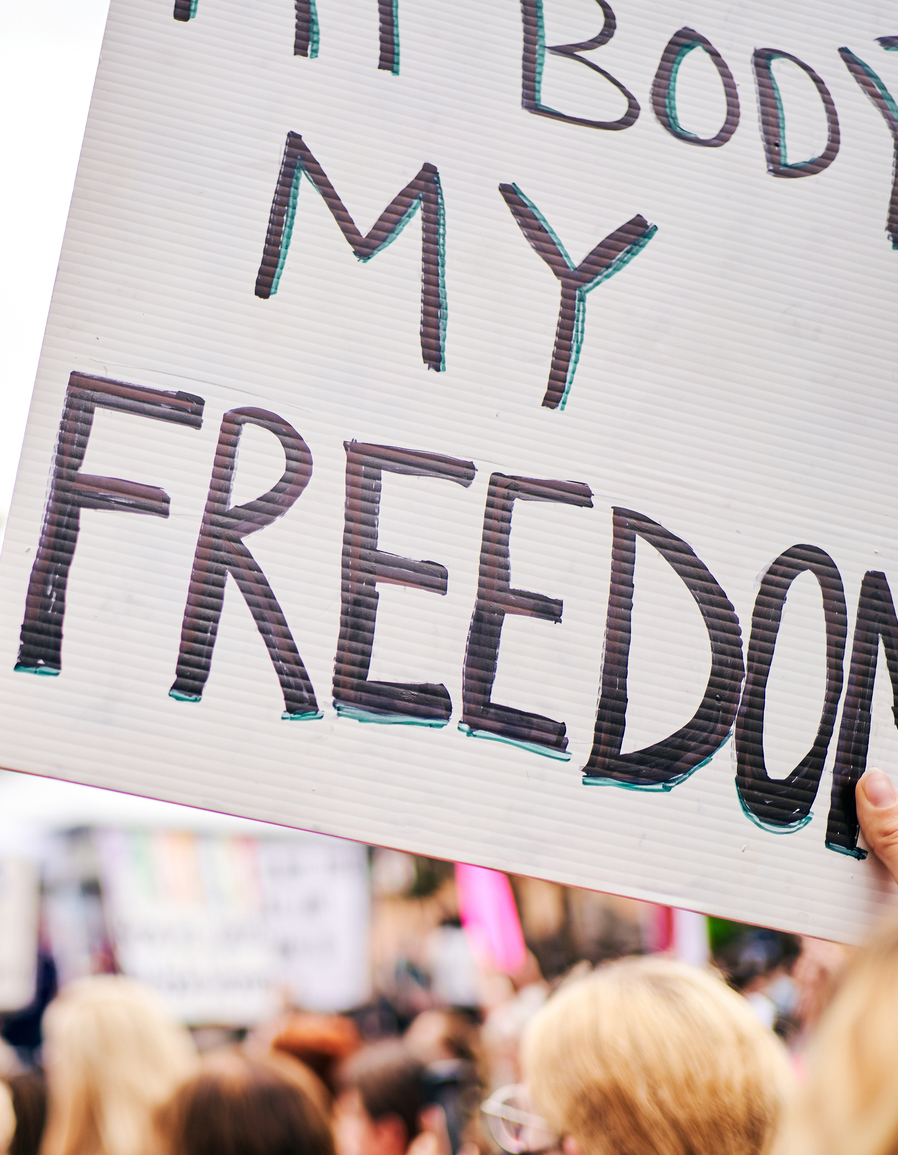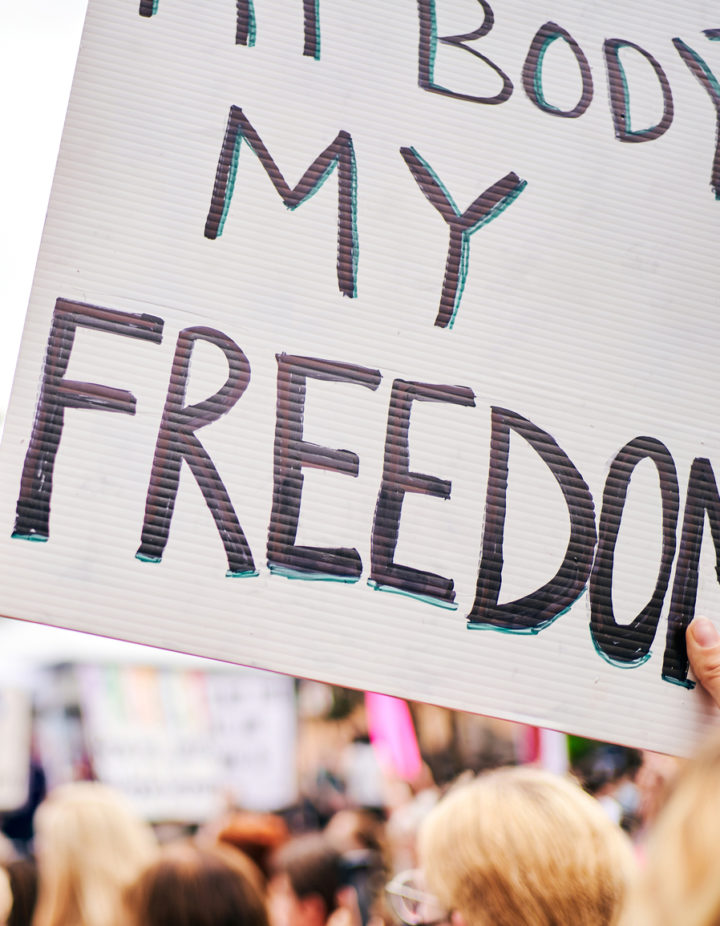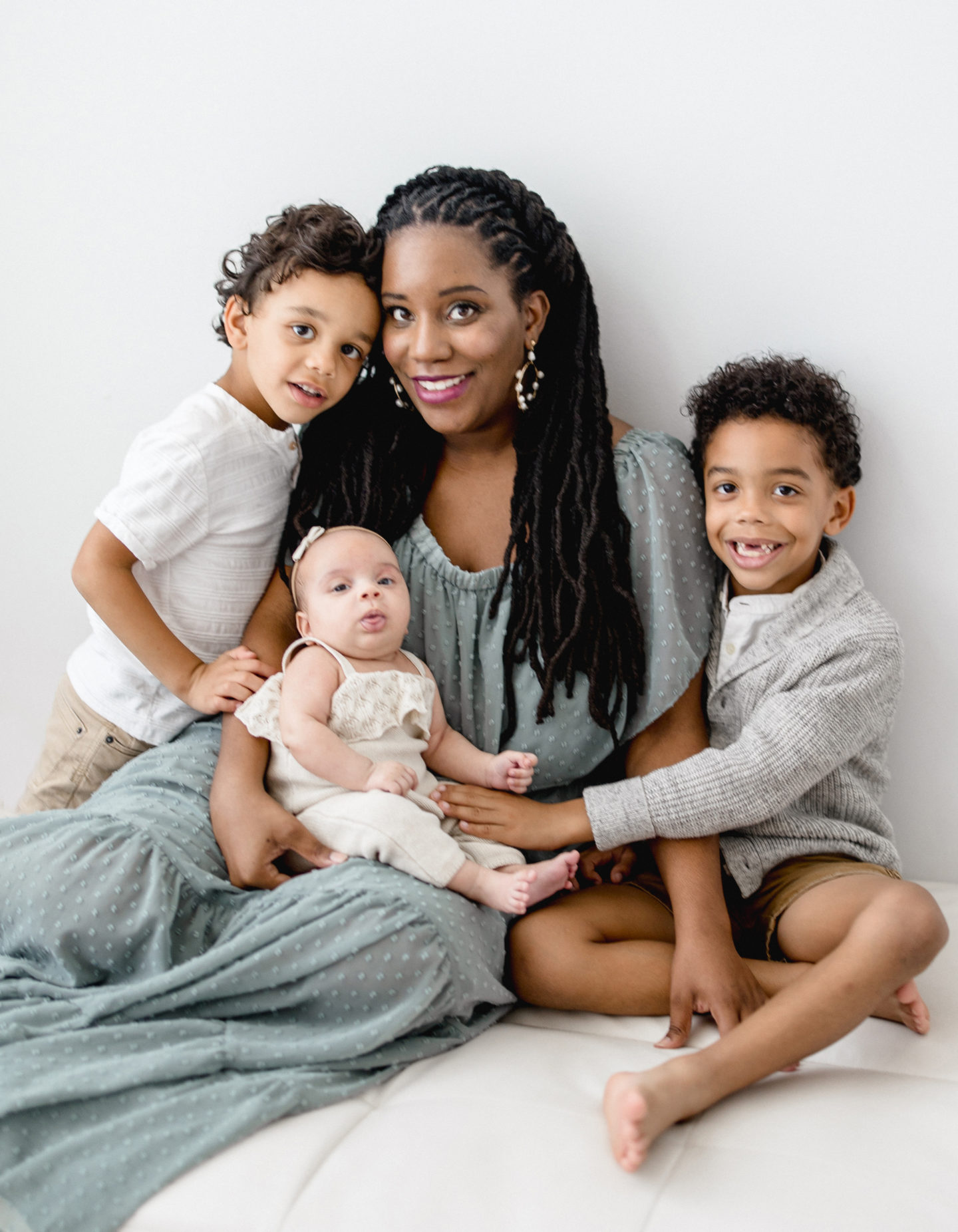We’re here to process the Supreme Court’s long-feared move to overturn the watershed Roe v. Wade with our friends from the Spread newsletter—a duo of wise, weird working mothers who we recommend inviting into your inbox every week. (We promise, they’re funnier when the news ain’t so bleak.)
Last night, between 8 and 9 p.m. Eastern Time, American women’s text chains began popping off like fireworks: according to an 89–page leaked draft opinion written by Justice Samuel Alito, the Supreme Court’s verdict on the future of Roe v. Wade is in—and the precedent is about to be struck down. According to Politico, this is the first time in modern history that a draft decision “has been disclosed publicly while a case was still pending.” The ruling was expected to come this summer, so the leak (six weeks ahead of schedule) caught activists, politicians, and all the rest of us off guard, and in a matter of hours kicked into gear a scramble to protect women’s rights.
Deep down, we all knew it was coming: The Court has sided with the state of Mississippi and its 15-week abortion ban in Dobbs v. Jackson Women’s Health. Justices Alito, Amy Coney Barrett, Neil Gorsuch, Brett Kavanaugh, and Clarence Thomas voted to overturn Roe—despite the fact that Gorsuch and Kavanaugh both essentially told Senator Susan Collins in their pre-appointment interviews that they would not overturn it. (Though she may have been the only one who actually believed this.) The three liberal justices dissented, and Chief Justice John Roberts’s vote is still unknown; it’s believed he’ll side with the liberals or write his own opinion. It’s worth noting that the decision won’t be final until it’s published by the court. But it seems almost certain that Roe will be overturned, and when that happens, abortion will immediately be explicitly or effectively outlawed in 26 states, a scenario that will disproportionately hurt poor women of color, primarily those who live in the American South.
To abortion-rights supporters (and believe or not, that’s most of us: a whopping 80 percent of Americans believe that abortion should be legal, according to a year-old Gallup poll) Alito’s language is …terrifying: “Roe was egregiously wrong from the start,” he writes, going on to note that the 1992 decision of Casey [v. Planned Parenthood], which upheld the constitutional right to abortion, also “must be overruled.”
What now?
On Twitter, abortions rights advocates have shifted into overdrive to tell women: Abortion is still legal. If you have an appointment, believe the clinic where you’re booked for your procedure. And in California, officials are already taking steps to protect abortion access. Monday night, Democratic lawmakers proposed an amendment to the state constitution solidifying abortion rights that would go to voters in November. “California will not sit back,” said Gov. Gavin Newsom. “We are going to fight like hell.”
So where do you Babes come in? The best thing to do righthissecond is donate to an abortion fund. These on-the-ground orgs arrange and pay for abortion care for those who need it, and they provide transportation for patients who have to travel hours to get to a clinic, sometimes crossing state lines. Our sisters over at The Cut offer a list of funds dedicated to providing access in the most abortion-hostile states. Top of their list: The Mississippi Reproductive Freedom Fund, which serves a state that has just one abortion clinic left, multiple abortion bans already in place, and 91 percent of women living in counties with no provider
Recommended reads: Get beyond the basics.
For some of us, the notion of a “post-Roe America” sounded like a dystopian Hulu show that, somehow—no matter what we knew about a Trump-loaded Supreme court—could never possibly exist. Today was the day that phrase got all too real. Lucky for us, a mighty network of advocates and activists have been working for years to build the framework to keep abortion access alive, for exactly this eventuality. This month The Atlantic devoted its cover to the question many of us woke up worrying about: Now what? Read it here: The Future of Abortion in a Post-Roe America.
In Politico Magazine’s “The Real Origins of the Religious Right,” reporter Randall Balmer delivers a conclusive case that abortion is not actually what fired up the evangelical right in the 1970s—rather, it was Conservatives’ desperation to maintain segregated schools. Read it here.
In “Safer Than Childbirth,” recently published by The American Scholar, writer Tamara Dean goes on a mission to understand abortion care in 19th-century America, which turns out to have been safe, legal, and not at all rare. Read it here.
Katha Pollitt, who literally wrote the book on our post-Roe society, frequently offers insights into the abortion dumpster-fire we’re living in through her Nation column, “Subject to Debate.” All of Pollitt’s work is worth perusing, but we want to point you to a recent piece in which she considers a new study that finds even self-described “anti-abortion” types are often willing to help out when loved ones need abortion care. Read it here.
The ultra-thoughtful essay “The Abortion I Didn’t Have” by Merritt Tierce ran in the New York Times Magazine in December, stopping Spread readers in their tracks with its elegant writing and fresh perspective. Read it here.
Takes & Takeaways: Follow these razor-sharp opinionators and experts for round-the-clock Roe-related insights.
- Emily Bazelon, Supreme Court guru and New York Times Magazine staff writer
- Jill Filopovic, Feminist opinion writer and lawyer
- Brihana Joy Gray, Podcaster, commentator, and Bernie Sanders’s National Press Secretary
- Jess McIntosh, Political strategist and commentator
- Tressie McMillan Cottom, Writer, professor, and New York Times columnist
About the Spread: Created by two former Elle editors and forever work wives, Rachel Baker and Maggie Bullock, the Spread is a weekly newsletter that curates the best of women’s media in a post-newsstand world. Subscribe—for free!—here.




